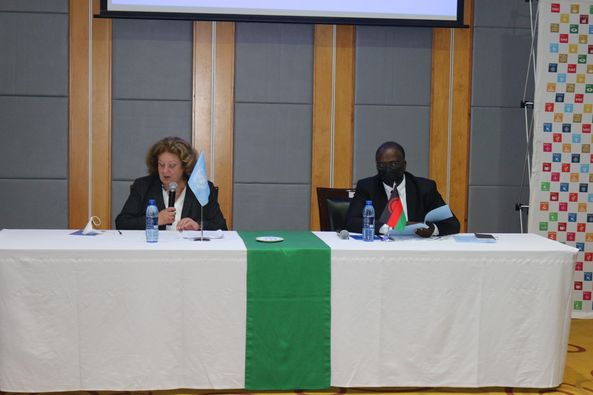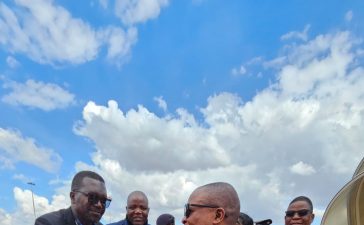BY BLAIR MHONE
The United Nations has contributed K66 billion to President Lazarus Chakwera’s Social Economic Recovery Plan, paving the way for the country to recover from the effects of the Covid-19 outbreak.
President Chakwera’s government last year devised the K580 billion recovery plan which covers the period 2021-2023, in order to enhance the capacity of Malawi and its people to effectively recover and build back better from the adverse impact of the COVID-19 pandemic and facilitate the transition to the effective implementation and realization of its development aspirations as espoused under MW2063.
The UN Malawi’s decision to pump in the funds was disclosed yesterday by UN Malawi Resident Coordinator Maria Do Valle Ribeiro during a high level joint strategy meeting in Lilongwe.
The UN Resident Coordinator said: “As Official Development Assistance to Africa continues to reduce, it is important for the Malawi government and UN in Malawi to adapt to this new reality and prioritize strategic and catalytic interventions to accelerate SDG implementation.”
Malawi’s government and the United Nations agreed at the meeting to accelerate progress in the areas of peace, inclusion, and effective institutions, population management, and inclusive human development, as well as inclusive and resilient growth, to help Malawi achieve the Sustainable Development Goals.
The Socio-Economic Recovery Plan (SERP) was developed through an extensive evidence-based consultative process that drew from different studies on the impact of COVID-19 and the spill-over effects.
The consultative process included insights, data and information on the pandemic provided by state and non-state actors.
Sectoral and other central Government experts identified the priorities for redress under the SERP and aligned it to existing frameworks and plans like the Malawi 2063 Vision, the UN Framework for The Immediate Socioeconomic Response to COVID-19, the National COVID-19 Preparedness and Response Plan, the Global World Health Organization’s Strategic Preparedness and Response Plan and the UN Sustainable Development Goals (SDGs).












